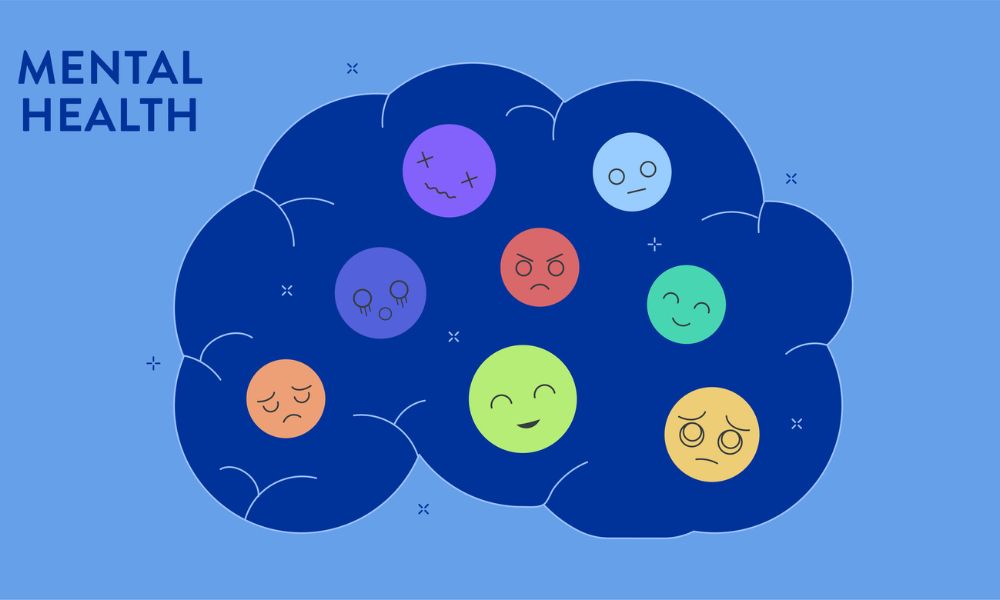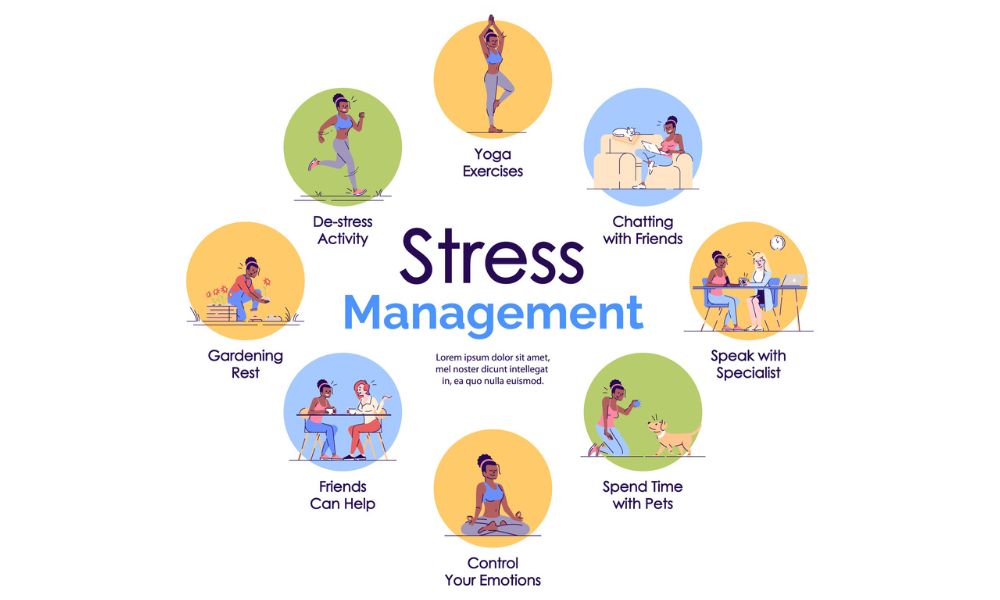Anger is a natural emotion that we all experience, yet it can often feel overwhelming. Learning to express anger in healthy and constructive ways is crucial for our emotional well-being and our relationships. Understanding how to manage this powerful emotion can lead to better communication and less stress in our lives.

When we fail to express anger appropriately, it can impact our health and overall quality of life. By recognising our feelings and finding safe outlets for them, we can transform anger from a destructive force into a catalyst for positive change. In this blog post, we’ll explore practical techniques for expressing anger that not only help us cope but also promote a healthier emotional state.
Key Takeaways
- Healthy expression of anger can improve our relationships and well-being.
- Recognising our feelings helps us manage anger more effectively.
- Seeking professional help is important when anger feels unmanageable.
Understanding Anger

Anger is a powerful emotion that we all experience. It plays an important role in our mental health and can be expressed in various ways. By understanding the nature of anger, its common triggers, and the physical and emotional signs we display when feeling angry, we can learn to express it in healthier, more constructive ways.
Nature of Anger
Anger is a natural response to perceived threats or injustices. It can be a reaction to frustration, hurt, or disappointment. Importantly, anger serves as a signal that something is wrong.
We often view anger as negative, but it can also motivate us to change situations. Recognising its role in our emotional landscape helps us process it constructively.
While anger is a normal feeling, the key lies in how we express it. Healthy expression can lead to problem-solving, while destructive expression may harm relationships and our mental health.
Common Triggers
Understanding what triggers our anger is essential. Common triggers may include:
- Frustration: Daily annoyances, such as traffic or being late.
- Injustice: When we perceive unfair treatment towards ourselves or others.
- Stress: Accumulated stress can cause us to be more irritable.
- Feeling ignored: When our needs or opinions are not acknowledged.
By keeping a journal or reflecting on our anger moments, we can identify patterns. Recognising these triggers helps us find better ways to cope and act before anger escalates.
Physical and Emotional Signs
Anger manifests in both physical and emotional ways. Some common signs include:
- Physical: Increased heart rate, tense muscles, sweating, or clenched fists.
- Emotional: Feelings of frustration, irritation, or even rage.
We may also notice changes in our behaviour, such as being more short-tempered or withdrawn. Acknowledging these signs is crucial for managing our anger effectively. When we notice these indicators, we can take steps to calm down, such as taking deep breaths or stepping away from the situation.
The Impact of Anger on Health and Life

Anger can significantly affect our emotional well-being, physical health, and relationships. Understanding these impacts helps us realise why managing anger is essential for a balanced life.
Emotional Well-being
We often experience anger as a powerful emotion that can cloud our judgment. When we don’t address it properly, we may find ourselves feeling anxious or depressed. Chronic anger can lead to ongoing stress, making it hard to enjoy daily life.
We may also notice that unexpressed anger can contribute to feelings of isolation. When we bottle up emotions, we might withdraw from friends and family. This isolation can create a cycle of frustration and loneliness, affecting our overall happiness.
To maintain our emotional health, we need to recognise our feelings. Accepting that it is okay to feel angry allows us to process it in a healthier way.
Physical Health Consequences
Anger doesn't just affect our mind; it impacts our body too. Prolonged anger triggers the body’s stress response. This can lead to a variety of health issues, such as high blood pressure and heart problems.
Physical symptoms of anger can include headaches, muscle tension, and upset stomach. These issues can limit our ability to do daily activities. Ignoring the physical signs of anger can cause lasting damage to our health.
To combat these effects, we can adopt stress management techniques. Regular exercise, mindfulness, and proper nutrition can help us regulate our anger and protect our health.
Effects on Relationships
Anger can strain our interactions with others. When we express anger negatively, it can lead to conflict and misunderstandings. This can create lasting rifts in our relationships with family, friends, and colleagues.
In moments of anger, we may say things we don’t mean. This can hurt others and damage trust. When we learn to communicate our feelings constructively, we can create healthier relationships.
Healthy expression of anger involves discussing our feelings openly. We can listen to others and find solutions together, which strengthens our connections and improves our social support.
Healthy Expression of Anger

When we express anger in healthy ways, we create a positive emotional response within ourselves and build stronger connections with others. This involves empathy towards ourselves and those around us, effective communication skills, and assertiveness training.
Developing Empathy
Empathy is crucial when it comes to managing our anger. It allows us to understand others' feelings and perspectives, which can help defuse anger. To develop empathy, we can try to:
- Listen actively when someone else is speaking.
- Put ourselves in their shoes by imagining how they feel.
- Ask clarifying questions to ensure we understand their point of view.
Practising empathy doesn't mean we dismiss our own feelings. It helps us see the bigger picture and respond more constructively.
Effective Communication Skills
Clear communication is vital in expressing our anger healthily. We should focus on sharing our feelings without blaming others. Here are effective strategies to enhance our communication:
- Use "I" statements like "I feel frustrated when…" instead of "You make me angry when…".
- Keep our tone calm and steady, even when we feel strong emotions.
- Avoid shouting or aggressive gestures, which can escalate the situation.
By improving how we communicate, we reduce misunderstandings and foster better connections with others.
Assertiveness Training
Assertiveness training allows us to express our anger confidently and respectfully. We can learn to stand up for ourselves while also considering others' feelings. Key steps include:
- Practising saying no to unreasonable demands without guilt.
- Setting boundaries about what behaviours we will tolerate.
- Expressing our needs clearly, helping others understand how to support us.
Being assertive helps us communicate our emotions without harming our relationships. It teaches us that it is okay to express anger when it is done respectfully.
Anger Management Techniques

To manage anger effectively, we can use several techniques that promote calmness and emotional balance. These methods help us control our reactions and express our feelings in healthier ways. Below, we explore three effective anger management techniques.
Relaxation and Breathing
One of the simplest ways to manage anger is through relaxation and deep breathing. When we feel anger rising, taking a moment to breathe deeply can help us regain control.
Steps for Deep Breathing:
- Find a Quiet Space: Get comfortable in a quiet area.
- Inhale Slowly: Breathe in deeply through your nose for a count of four.
- Hold Your Breath: Keep the air in for a count of four.
- Exhale Gradually: Breathe out slowly through your mouth for another count of four.
Repeating this exercise several times can lower our heart rate and stress levels, making it easier to think clearly.
Mindfulness and Meditation
Mindfulness and meditation are effective coping strategies when managing anger. Practising mindfulness allows us to observe our feelings without immediate reaction. This awareness helps us respond rather than react impulsively.
Basic Mindfulness Technique:
- Focus on the Present: We can sit quietly and notice our breath or our surroundings.
- Acknowledge Feelings: Recognising our anger without judgement can reduce its intensity.
Meditation can also be a powerful tool. Spending just a few minutes each day in meditation can help us build emotional resilience. Apps and online resources can guide us through meditation practices designed specifically for anger management.
Physical Exercise
Physical exercise is not just good for our bodies; it also helps us manage anger effectively. Engaging in regular physical activity can release endorphins, which improve our mood and decrease stress levels.
Recommended Exercises:
- Walking or Jogging: Simple activities like walking can clear our minds and reduce frustration.
- Dancing: This is a fun way to express ourselves and let go of pent-up emotions.
- Yoga: It combines physical movement with mindfulness, promoting relaxation.
By incorporating physical exercise into our routine, we can develop healthier ways to cope with anger and stay balanced.
When to Seek Professional Help
Recognising when we need help with our anger can lead to healthier responses and improved well-being. There are clear signs we can identify, along with options for therapy and support that can aid in managing anger effectively.
Recognising Anger Issues
We should pay attention to patterns in our anger. If we find ourselves frequently losing control or reacting with excessive rage, it may indicate a larger problem. Signs include:
- Frequent outbursts: If we often get angry over minor issues, it may be time to seek help.
- Physical symptoms: Stress and anger can lead to headaches, stomach problems, or insomnia.
- Relationship strain: If anger is harming our relationships, it's crucial to take action.
Acknowledging these signs can be the first step toward recovery and finding effective ways to manage anger.
Therapy Options
Therapy can be a valuable resource for addressing anger problems. We can explore various types of therapy, such as:
- Cognitive Behavioural Therapy (CBT): This approach helps us understand the thoughts behind our anger and teaches us coping strategies.
- Anger Management Therapy: Tailored sessions focus specifically on identifying triggers and developing better responses.
- Group Therapy: These sessions allow us to share experiences with others facing similar challenges, fostering community support.
Finding a qualified therapist can make a significant difference in our journey towards better emotional management.
Support Groups and Workshops
Participating in support groups and workshops can provide additional encouragement. We can learn from others and share our experiences in a safe space. Notable benefits include:
- Peer Support: Hearing others’ stories can help us feel less alone and provide insights into coping mechanisms.
- Skill Development: Many workshops offer practical exercises to improve anger management skills.
- Accessibility: Often, support groups are available in our communities, making it easier for us to connect.
These resources can be instrumental in helping us navigate our anger and promote healthier emotional expressions.
Preventive Strategies
To manage anger effectively, we can adopt preventive strategies that address our daily habits and emotional health. These strategies focus on making lifestyle adjustments, ensuring proper diet and sleep, managing expectations, and avoiding known triggers.
Lifestyle Adjustments
Making specific lifestyle changes can lower our frustration levels. Regular physical activity, even something as simple as walking, can greatly enhance our mood and reduce stress.
We can also practice mindfulness techniques, such as meditation or deep-breathing exercises. These methods help us stay calm and centred, which is essential when we face anger-inducing situations.
Social connections matter, too. Spending time with friends and family provides support and boosts our emotional state, preventing anger from building up. We should look for healthy ways to express our feelings during these social interactions.
Diet and Sleep
What we eat and how much we sleep directly impact our emotional health. A balanced diet rich in nutrients helps us feel better. Foods like fruits, vegetables, and whole grains are known to stabilise mood.
We must also consider our caffeine and sugar intake. Both can lead to spikes in energy followed by crashes that may increase irritability. Staying hydrated is equally important, as dehydration can affect our mood negatively.
Sleep is another crucial factor. Aiming for 7-9 hours of quality sleep each night allows our bodies and minds to recover. Lack of restful sleep can exacerbate feelings of frustration and anger, making it important to establish a calming bedtime routine.
Managing Expectations
Setting realistic expectations for ourselves and others can significantly help in preventing anger. We often feel frustrated when our high expectations are not met.
By practising patience and understanding, we can better cope with disappointments. It's useful to communicate clearly about what we expect and to listen to the needs and feelings of others.
We should remind ourselves that everyone has flaws and that things don’t always go as planned. This perspective can soften our emotional responses and help us stay calm in challenging situations.
Avoiding Known Triggers
Identifying and avoiding known triggers is key to managing anger. We each have specific situations or people that can provoke frustration.
Taking time to recognise these triggers allows us to develop strategies to cope more effectively. For instance, if traffic jams make us angry, we might plan our routes better or leave earlier.
Creating a list of our common triggers can also help us prepare for situations that might lead to anger. When we know what to expect, we can react more thoughtfully instead of impulsively.
Moving Beyond Anger
Anger is a powerful emotion, but when we learn to manage it, we can use it for personal growth and emotional well-being. By recognising and understanding our anger, we can transform it into a positive force for change.
Personal Growth
Working through our anger can lead to significant personal growth. When we take time to explore what triggers our anger, we gain insight into our values and boundaries. This self-awareness helps us understand ourselves better.
Recognising patterns in our anger can shed light on unresolved issues from our past. We can ask ourselves questions such as:
- What situations provoke my anger?
- Are there deeper feelings behind this anger?
- How do I usually react to anger?
By answering these questions, we open the door to personal development.
Learning from Anger
Instead of pushing our anger aside, we can learn valuable lessons from it. Anger often points us towards what matters most in our lives. It acts as a signal that something needs to change.
We can use anger as a tool for reflection. Journalling is an effective way to process these feelings. By writing down our thoughts, we can express and analyse our anger.
Here are a few prompts to help us reflect:
- What made me feel angry today?
- How did I respond, and was that response effective?
- What can I learn from this experience?
Engaging in this practice can help us identify actionable steps to handle our feelings better.
Building Resilience
As we move beyond anger, we develop resilience. Learning to manage our anger contributes positively to our emotional well-being. It allows us to bounce back from challenges more effectively.
We can enhance our resilience through various strategies, like mindfulness and deep breathing. These techniques encourage us to pause and rethink before reacting.
Building supportive connections with others also plays a crucial role. Discussing our feelings with trusted friends or a mental health professional can offer new perspectives.
Incorporating these practices into our daily routines fosters emotional strength and prepares us for future challenges.
Frequently Asked Questions
In this section, we will address key questions about expressing anger in healthy ways. Understanding effective strategies can help us manage our emotions constructively and improve our relationships.
What are some effective strategies for voicing frustration without harming others?
We can use “I” statements to express feelings. For example, saying “I feel frustrated when…” helps clarify our emotions without blaming others. Staying calm and choosing the right time to talk also makes a big difference.
In what ways can children be taught to handle their anger constructively?
Teaching children to recognise their feelings is vital. We can encourage them to use words to express anger rather than acting out. Role-playing situations can also help them practice calm responses.
What are the psychological recommendations for managing anger in a healthy manner?
Psychological experts suggest using techniques like deep breathing and mindfulness. These methods help us pause before reacting. Journaling about our emotions can also offer insight into what triggers our anger.
Can you suggest ways to articulate anger that can lead to positive outcomes in relationships?
We should express what we need from the situation. Focusing on solutions instead of problems can change the conversation. Being open to feedback can lead to better understanding and collaboration.
How might one use physical activity to process anger without resorting to aggression?
Engaging in physical activities such as running or yoga can release built-up tension. Exercise helps us channel anger positively. Even a short walk can help clear our minds and reduce stress.
What techniques exist for using language to express anger in a non-destructive way?
We can practice active listening during discussions. This means we hear the other person's point of view before sharing ours. Keeping our tone steady and avoiding insults is essential for constructive communication.





















